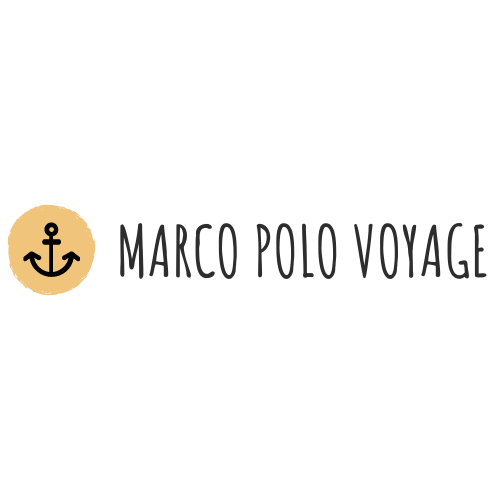Philosophy has always been about wrestling with the big questions, the sort that keep you up at night pondering the nature of everything around us. These inquiries push us to think beyond our daily routines and consider what truly underpins our existence, our choices, and our societies. Engaging with philosophical discourse offers more than intellectual exercise; it provides a framework for understanding ourselves and the world we inhabit. Whether it is through examining ancient allegories or grappling with modern ethical dilemmas, philosophy invites us to challenge assumptions and develop a more nuanced perspective on life.
Fundamental questions that challenge our understanding
Examining Existence and the Nature of Reality
When we turn our attention to the mysteries of existence, we inevitably confront questions about what is real and what merely appears to be. The allegory of the cave, for instance, famously illustrates how our perception might be limited to shadows on a wall, suggesting that true reality lies beyond what we immediately observe. This metaphor encourages us to question whether we are perceiving the world as it genuinely is or whether we are confined by our sensory experiences and preconceived notions. The ship of Theseus presents another intriguing puzzle: if every component of a vessel is replaced over time, does it retain its original identity? Such thought experiments probe the essence of objects and beings, forcing us to consider what constitutes continuity and selfhood.
Metaphysics delves deeply into these concerns, exploring the philosophy of space and time, the existence of God, and the tension between free will and determinism. These topics are not merely abstract musings; they touch upon the very foundations of how we interpret our lives and actions. The problem of evil, for example, asks why suffering exists if an all-powerful and benevolent deity oversees the universe. This question has sparked centuries of debate and remains a cornerstone of the philosophy of religion. Meanwhile, discussions around determinism challenge the notion of personal agency, questioning whether our choices are truly our own or simply the inevitable result of prior causes.
Knowledge, Reason, and the Limits of Human Understanding
Philosophy also scrutinizes the nature of knowledge itself, prompting us to ask how we know what we know and whether there are boundaries to human understanding. The Chinese room thought experiment, for instance, interrogates whether a machine can genuinely comprehend language or if it merely simulates understanding through programmed responses. This inquiry is particularly relevant in our age of artificial intelligence, where the line between genuine consciousness and sophisticated mimicry grows ever more blurred. The Calle Cultura blog and similar platforms often explore these themes, encouraging readers to engage with complex ideas in accessible ways.
Epistemic ethics addresses the moral dimensions of belief and knowledge, considering issues such as testimonial injustice, where marginalized groups find their voices dismissed or undervalued. This phenomenon highlights how power dynamics shape what is accepted as truth and whose experiences are deemed credible. By examining these biases, philosophy not only broadens our intellectual horizons but also calls us to act more justly in our interactions with others. The philosophy of science further investigates the methods and assumptions underlying scientific inquiry, reminding us that even our most rigorous systems of knowledge rest on certain foundational beliefs that warrant scrutiny.
Critical Thinking and Personal Reflection in Philosophical Discourse
Encouraging independent thought and questioning assumptions
One of the most valuable contributions of philosophy is its emphasis on critical thinking and the willingness to question deeply held assumptions. Engaging with philosophical arguments trains the mind to evaluate evidence, identify logical fallacies, and construct coherent reasoning. This skill is not confined to academic debate; it enriches everyday decision-making and empowers individuals to navigate complex social and political landscapes with greater clarity. The trolley problem, a staple of moral philosophy, exemplifies this approach by presenting a stark ethical choice: would you divert a runaway trolley to kill one person instead of five? There is no easy answer, and that is precisely the point. Such dilemmas compel us to articulate our values and consider the principles that guide our actions.
Philosophy blogs and online platforms have democratized access to these discussions, inviting a broader audience to participate in philosophical discourse. Readers are encouraged to share their thoughts, challenge prevailing viewpoints, and contribute to a collective exploration of ideas. This interactive dimension fosters a community of inquiry where diverse perspectives can be aired and examined. Whether discussing utilitarianism, deontology, or virtue ethics, the goal is not to arrive at a single correct answer but to deepen our understanding of the issues at stake and the reasons behind different positions.
Ethical Dilemmas and the Search for Meaning in Life
Ethics remains one of the most compelling areas of philosophy, addressing questions about how we ought to live and what constitutes a good life. Utilitarianism, for instance, evaluates actions based on their consequences, advocating for choices that maximize overall happiness or well-being. This approach has been applied to a range of contemporary issues, from poverty alleviation to environmental ethics, offering a framework for assessing policies and personal decisions alike. However, utilitarianism is not without its critics. Some argue that it can justify morally questionable acts if they produce favourable outcomes, raising concerns about the ethics of utilitarian calculations.
Deontology, by contrast, emphasizes duty and adherence to moral rules, regardless of consequences. This perspective insists that certain actions are inherently right or wrong, independent of their outcomes. Virtue ethics offers yet another lens, focusing on the character and intentions of the moral agent rather than on specific actions or outcomes. These competing frameworks illustrate the richness of ethical thought and the difficulty of resolving moral dilemmas in any definitive way. Feminist philosophy and feminist ethics have further enriched this landscape by highlighting how traditional theories often overlook or marginalize the experiences and concerns of women and other underrepresented groups.
Existentialism shifts the focus to the individual's search for meaning in a seemingly indifferent universe. Thinkers in this tradition argue that we must confront the absurdity of existence and take responsibility for creating our own values and purposes. This perspective can be both liberating and daunting, as it places the burden of meaning squarely on our shoulders. Yet it also celebrates human freedom and the capacity for authentic self-expression. Questions of identity, consciousness, and personal philosophy are central to existentialist inquiry, reminding us that philosophy is not merely an academic discipline but a lived practice that shapes how we understand ourselves and our place in the world.
The personal dimension of philosophy cannot be overstated. Philosophical positions are deeply influenced by personal experiences, and philosophy can serve as an expression of one's worldview. Women in philosophy, for example, have brought fresh perspectives to the discipline over the past fifty years, challenging established norms and expanding the scope of philosophical inquiry. Relational identity, defined by how others perceive you, and concepts such as testimonial injustice underscore the importance of recognizing the social and personal contexts that shape our beliefs and values. By engaging with these ideas, we cultivate a more reflective and empathetic approach to the challenges we face, both individually and collectively.
